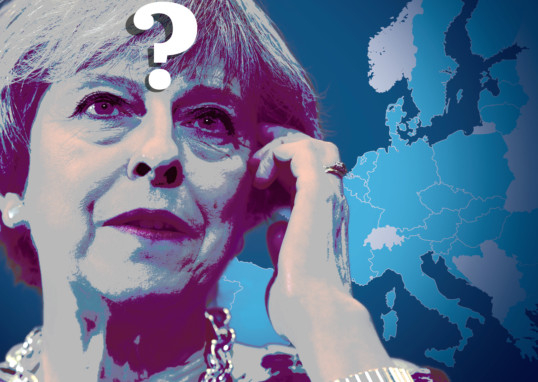
Mutineers, saboteurs, enemies of the people. As the Brexit debate approaches climax, it is running short of terms of abuse. It reverts to the language politics knows best — of the bully in the playground.
There is a serious tactical mistake on Prime Minister Theresa May’s part. She is isolating as rebels and “Brexit deniers” precisely those on whose support any workable deal for leaving the European Union (EU) will depend. On the other hand, she is giving comfort to the no-dealers and cliff-edgers, who are happy to see the Brussels talks fail and Britain default to the “deep blue sea”. She has demonised common sense, and forced friend and foe alike to the language of extremes.
The 2016 referendum was nasty because it collapsed the customary courtesy of partisan politics. Voters had to think for themselves, and the politicians found it distressing. Brexit dug deep into the public subconscious. It brought to the surface the insecurities and angers that underpin the new politics of identity.
On the Right, it gave rein to the old Powellite politics of “Britishness”, and a voice to those left behind by what they see as an aloof cosmopolitanism. Equally, it brought home to the educated middle class that if you fail to persuade a critical mass of minorities of your case, you will lose.
Even if the “mutineers” — as the Daily Telegraph called them — secure enough defeats to overturn the 2019 deadline, it would take a political earthquake to reverse Brexit. British parliament voted last summer overwhelmingly to accept the referendum outcome, but it did not go further and stipulate the terms of that acceptance. Since the referendum offered no alternative to a blank ‘yes’ or ‘no’, it left millions who might have voted “yes, but ...” in no-man’s-land.
That was when May should have stated clearly a desire for “Brexit, but soft Brexit”. She should have forced the no-dealers to choose collaboration or rebellion, and Labour and Liberal Democrats to assist her in that traditional role of Tory prime ministers, to fashion a compromise with her party on Europe.
Every Tory prime minister since Edward Heath has had his or her anti-European fanatics, a sort of discomfort blanket. Thatcher did, over the single market. John Major did, over Maastricht. David Cameron did, over the referendum. They caused much damage, but until Cameron they never dictated policy.
Since that vote in parliament, there has been no sign of a scenario that even begins to suggest what the government wants to do next — about transition, single market, customs union, anything.
Wisdom would fasten on to what the British electorate thought it meant in the referendum. Every poll indicates that it meant soft, not hard, Brexit: Yes to open borders and open trade; yes to reasonably free movement; no to “unnecessary” regulation and to “unfair” access by foreigners to state welfare, as in other EU countries. May’s task was to allay the fears voters had of their “British identity” being eroded, while maintaining a frictionless relationship with European states. It was to sell some version of a Norway, or other compromise deal.
May has been unable to master the new geography of Brexit politics. She has driven both sides to the extremes, where they have all the best tunes. The bi-party system and the architecture of parliament favour thesis against antithesis, not synthesis.
Democracy always finds it hard to summon troops to the banner of moderation. The middle ground murmurs sotto voce. Political language has become the language not of discovery, but of attack and defence. But the old politics of Labour and Conservative embraced this dichotomy within the concept of a Broad-Church coalition.
The new politics holds that Broad-Church parties are a thing of the past. When people think politically, they no longer think nationally but rather of themselves, their group and its interests. The cry of the group is: “You cannot understand me as you have not shared my experience.” This is the death of representative government. It is Alexis de Tocqueville’s “atomised democracy”, the dictatorship of appeased minorities. It is made worse by the “truth decay” of social media and the tyranny of the click. There is nothing identity politics likes so much as hate.
American political academics Jonathan Haidt and Mark Lilla have warned that a moral confusion over group identity risks “distorting liberalism’s message and prevented it from becoming a unifying force capable of governing”. This is not just some intellectual reflection. It describes British politics as it is currently: In awe of the hard-Brexit minority, and unable to articulate what a majority of Britons so clearly want, which is an orderly path to a soft Brexit.
As a EU “sceptic”, I long for some lighter-touch, less German-centric framework for European economic collaboration. But if Britain crashes chaotically out of the EU — smashing treaties, agreed disciplines and friendships as it goes — it will put at risk the good of almost half a century of European bonding.
This will not be because of the Brexit referendum. It will be because British politics could not find a language for a sensible compromise. It could not find a grammar of the sensible centre. The truth is, May has chosen the wrong people.
— Guardian News & Media Ltd
Simon Jenkins is a senior Guardian columnist.










